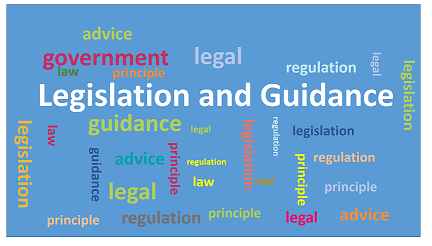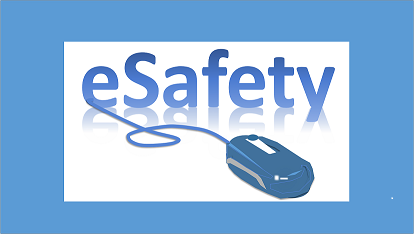Safeguarding News March 2023
Welcome to the round up of safeguarding news from March 2023.
Important message, please help if you can!
SAFEcic is proud to be associated with the charity Friends of the Ferns and the amazing work they do supporting all children, young people and adults, who attend the Ferns. The Ferns is the Suffolk Sexual Assault Referral Unit (SARC).
The SARC offers medical, practical and emotional support to anyone who has been sexually assaulted or raped. This is provided by specially trained Paediatricians, Forensic Nurse Examiners (FNE), and Independent Sexual Violence Advisors.
Louise Elmy, SARC & ISVA Manager and Carol Studd, SARC Supervisor/Lead Crisis Worker are bravely shaving their hair to raise money.
SAFEcic ‘s Managing Director Rosie Carter, was a founding trustee of the charity Friends of the Ferns and understands the importance of the support The Ferns is providing to each individual. The Friends of the Ferns are constantly looking at raising the funds needed to provide practical help, such as a change of clothes, new bed linen and much more, in their task of supporting those who have been through harrowing and traumatic experiences. Every penny raised goes directly towards the benefit of those affected by sexual assault and rape.
There are SARC's across England. Find your local SARC here
Our Safeguarding Rapid Review Service is incredibly popular and demand for this service is high. If you are considering reviewing your safeguarding arrangements this service could prove invaluable.
Our latest training schedule is listed below and feel free to share this email with your colleagues and they too can join our newsletter database.
To sign up simply click here.
Services Update
SAFEcic is also accepting many more bookings for its face to face safeguarding training and audit services. There is also a packed calendar of blended learning events available to book for your organisation. The courses are a very cost effective way of training your staff and volunteers.
SAFEcic Blended Learning Training Calendar
Leading on Child and Adult Safeguarding
Safeguarding Training, Leading on Child and Adult. Online course plus Zoom
Wed 19 April 2023
10:30 - 12:00 GMT
Safeguarding Training, Leading on Child and Adult. Online course plus Zoom
Thu 11 May 2023
10:30 - 12:00 GMT
Safeguarding Training, Leading on Child and Adult. Online course plus Zoom
Wed 14 June 2023
10:30 - 12:00 GMT
Safeguarding Training, Leading on Child and Adult. Online course plus Zoom
Tue 11 July 2023
10:30 - 12:00 GMT
Safeguarding Training, Leading on Child and Adult. Online course plus Zoom
Wed 9 August 2023
10:30 - 12:00 GMT
Safeguarding Training, Leading on Child and Adult. Online course plus Zoom
Wed 20 September 2023
10:30 - 12:00 GMT
Safeguarding Training, Leading on Child and Adult. Online course plus Zoom
Wed 10 October 2023
10:30 - 12:00 GMT
Safeguarding Training, Leading on Child and Adult. Online course plus Zoom
Wed 22 November 2023
10:30 - 12:00 GMT
Safeguarding Training, Leading on Child and Adult. Online course plus Zoom
Tue 12 December 2023
10:30 - 12:00 GMT
Standard Child and Adult Safeguarding
Safeguarding Training, Standard Child and Adult. Online Course plus Zoom
Tue 9 May 2023
10:30 - 12:00 GMT
Safeguarding Training, Standard Child and Adult. Online Course plus Zoom
Tue 4 July 2023
10:30 - 12:00 GMT
Safeguarding Training, Standard Child and Adult. Online Course plus Zoom
Mon 18 September 2023
10:30 - 12:00 GMT
Safeguarding Training, Standard Child and Adult. Online Course plus Zoom
Thu 30 November 2023
10:30 - 12:00 GMT
Safeguarding: Trustees’ legal responsibilities
Safeguarding: Trustees' legal responsibilities. Online Course plus Zoom
Wed 21 June 2023
10:00 - 11:30 GMT
Safeguarding: Trustees' legal responsibilities. Online Course plus Zoom
Thu 20 July 2023
10:00 - 11:30 GMT
Safeguarding: Trustees' legal responsibilities. Online Course plus Zoom
Thu 21 September 2023
10:00 - 11:30 GMT
Safeguarding: Trustees' legal responsibilities. Online Course plus Zoom
Tue 21 November 2023
10:00 - 11:30 GMT
Safer Recruitment Training. Online course plus 2 Hr Live Online training
Wed 24 May 2023
10:00 - 12:00 GMT
Safer Recruitment Training. Online course plus 2 Hr Live Online training
Wed 12 July 2023
10:00 - 12:00 GMT
Safer Recruitment Training. Online course plus 2 Hr Live Online training
Tue 19 September 2023
10:00 - 12:00 GMT
Safer Recruitment Training. Online course plus 2 Hr Live Online training
Wed 1 November 2023
10:00 - 12:00 GMT
Safer Recruitment Training. Online course plus 2 Hr Live Online training
Thu 7 December 2023
10:00 - 12:00 GMT
SAFEcic's free hub resources by setting are available through the SAFEcic.co.uk main menu. Alternately you can bookmark the links below:
Education | Dental | Charities | GP & Primary Medical Services | Fath Groups | Entertainment & Leisure | Working Overseas |
Legislation
Bills
UK
The Data Protection and Digital Information (No. 2) Bill 2022-23 was introduced in the House of Commons on 8 March 2023.Much of the Bill is the same as the Data Protection and Digital Information Bill [Bill 143 2022-23] which was introduced in the Commons on 18 July 2022. The original Bill was scheduled to have its second reading on 5 September 2022. A Library Briefing on the Bill (PDF) (31 August 2022) was published for the debate. However, in a Business Statement on 5 September 2022, the Government said that, following the election of Elizabeth Truss as Conservative Party leader, the second reading would not take place. This was to allow Ministers to consider the Bill further. The Bill was withdrawn on 8 March 2023. An updated library briefing has been published.
England and Wales
The Victims and Prisoners Bill
Victims’ voices will be cemented at the heart of the justice system following an overhaul of legislation which will put the principles of the Victims’ Code on a statutory footing and toughen the parole system.
The Victims and Prisoners Bill will fundamentally transform victims’ experience of the criminal justice system. Legislation will enshrine the principles of the Victims’ Code in law, give ministers powers to direct the inspection of justice agencies that are failing victims, and create better oversight of those agencies.
The parole system will also be overhauled allowing ministers to block the release of the most dangerous offenders including murderers, rapists, and terrorists - putting public protection back as the overriding focus of the parole process. The bill will also legislate for a new release test for the Parole Board making it clear that public safety is the only priority when making release decisions – to stop a balancing exercise taking into account prisoners’ rights.
The new legislation will also stop prisoners serving whole-life orders from marrying or forming a civil partnership in prison. This will deny these criminals the important life events they stole from their victims while ensuring their horrific crimes are treated with the seriousness they deserve.
The bill also bolsters the role of the Victims’ Commissioner by requiring criminal justice agencies to publicly respond to their recommendations and set out the rationale for accepting or rejecting them
Children born as a result of rape will also be explicitly designated as victims in their own right making clear that they are entitled to access support services and information on their case.
The bill includes measures to ensure dangerous offenders face the strictest scrutiny including:
- Enshrining a new release test for the Parole Board into law, leaving no room for confusion over whether public safety should be the only priority when making release decisions
- Creating a new tier of the most serious offenders including murderers, rapists and terrorists and giving the Justice Secretary the power to veto the release of those offenders in the interest of public safety. It will also be available in cases where the Parole Board cannot confidently decide the release test has been met.
- Making it a legal requirement for ex-police officers and detectives to sit on parole panels for these ‘top-tier’ cases. Their first-hand experience of managing serious offenders and the risk they pose will help place an even greater focus on public protection in parole hearings.
Inquiry and Review Reports

Smiling matters: Oral health in care homes - progress report
The Care Quality Commission ( CQC) has published the findings of a follow-up review on the state of oral health care in care homes across England. This review shows there have been improvements in the understanding of how important oral health is to keep people healthy. CQC first reviewed oral health in care homes in 2019, and found steps were often not being taken to ensure that people get the oral health care they need to ensure that they are pain-free and that their dignity is respected. The health and social care regulator has conducted a follow-up review of how providers have responded to its recommendations from 2019 and was pleased to find that improvements were being made.
The review found:
- Care homes are much more aware of the NICE oral health guideline. In 2019, only 61% were aware of the guidance. This has now increased to 91%.
- More than double the proportion of care plans fully covered oral health needs, compared to our review of care plans in 2019 (60% in 2022; 27% in 2019), however more work needs to be done to ensure all care plans cover oral health.
- The percentage of care home providers saying that staff always (or mostly always) receive specific training in oral health has doubled from 30% in 2019 to 60% in 2022. This however means 40% of staff may not receive training, which needs to improve.
- Inspectors remain concerned that people living in care homes are missing out on vital care from dental practitioners – both at the right time and in the right place.
- Care home providers also highlighted that not enough dentists were able or willing to visit care homes to treat people who may be less mobile.
CQC has made a number of recommendations, including:
- Care home providers raise awareness of what people should expect when they enter a care home and their families, such as :getting an oral health assessment on admission to a care home
- how much treatment should cost, and who is exempt and entitled to free treatment on the NHS.
- To improve collaboration in planning for the health and wellbeing of people in their area, we suggest that commissioners:
- promote cross-sector integration between care home and dental professionals
- use funding to improve oral health in care homes – through local initiatives like peer-to-peer support schemes or increasing dental access and training.
Research Reports, Consultations and Studies

1. House of Commons research paper Gambling advertising: how is it regulated? looks at the regulation of gambling advertising in Great Britain.
What does the law require?
Gambling operators selling into the British market must have a Gambling Commission licence to transact with, and advertise to, British consumers. The Commission’s Licence Conditions and Codes of Practice require operators to comply with the Advertising Codes, administered by the Advertising Standards Authority (ASA). The Codes aim to ensure that gambling adverts do not:
- portray, condone, or encourage gambling behaviour that is socially irresponsible or could lead to financial, social or emotional harm.
- exploit the susceptibilities, aspirations, credulity, inexperience or lack of knowledge of children, young persons or other vulnerable persons.
- suggest that gambling can be a solution to financial concerns.
- link gambling to seduction, sexual success or enhanced attractiveness.
- be of strong appeal to children or young persons, especially by reflecting or being associated with youth culture.
- feature anyone gambling or playing a significant role in an advert if they are under 25 years old (or appear to be under 25).
Adverts that breach the Codes have to be amended or withdrawn. If serious or repeated breaches occur, the ASA can refer advertisers to the Gambling Commission and broadcasters to Ofcom.
Concerns about advertising
Gambling advertising has increased substantially since the Gambling Act 2005 came into force. This has led to concerns about its impact on children, young people, and vulnerable adults. The relationship between gambling and sport has come under particular scrutiny.
What is the gambling industry doing?
The Betting and Gaming Council represents around 90% of the UK’s betting and gaming industry (excluding lotteries). Its Code of Conduct requires adherence to an Industry Code for Socially Responsible Advertising.
What is the Government doing?
The Government has said that the rules on gambling and advertising must be “suited to the digital age”. A Gambling Act Review sought views on, among other things, the impacts of gambling advertising. The Review ran from 8 December 2020 to 31 March 2021 and received approximately 16,000 submissions. The Government has not yet responded, but a white paper is due to be published “in the coming weeks”.As of 3rd April 2023 the white paper has not been published.
2. The government has launched a review of the whistleblowing framework
A review of the whistleblowing framework – the laws that support workers who blow the whistle on wrongdoing in the workplace – has been launched by the Government today.
The review will seek views and evidence from whistle blowers, key charities, employers and regulators.
Whistleblowing refers to when a worker makes a disclosure of information which they reasonably believe shows wrongdoing or someone covering up wrongdoing. Workers who blow the whistle are entitled to protections, which were introduced through the Public Interest Disclosure Act 1998 (PIDA). Successive governments have taken steps to strengthen whistleblowing policy and practice.
For authorities tackling corruption, fraud and other economic crime, whistleblowing is a crucial source of evidence, as these activities and their perpetrators can only be exposed by insiders.
It also provides a route for employees to report unsafe working conditions and wrongdoing across all sectors.
This was keenly felt during the height of the Covid-19 Pandemic, when the Care Quality Commission and Health and Safety Executive recorded sharp increases in the number of whistleblowing disclosures they received.
This review will cover central topics, key to the whistleblowing framework:
- who is covered by whistleblowing protections.
- the availability of information and guidance for whistleblowing purposes (both on gov.uk and that provided by employers).
- how employers and prescribed persons respond to whistleblowing disclosures, including best practice.
The evidence gathering stage of the review will conclude in Autumn 2023.
Resources

1. Grant funding awarded to help vulnerable people with legal issues
Source: Ministry of Justice published on this website Monday 13 March 2023
The Access to Justice Foundation has been awarded funding to administer the ‘Improving Outcomes Through Legal Support’ grant.
The grant will help thousands more people get access to early legal help after the government announced £12 million of new grant funding in November 2022.
This new grant will run from July 2023 until March 2025, with a greater emphasis on the provision of at court support and building an evidence base through robust data collection. The Access to Justice Foundation has published details on how to apply.
The funding will be awarded to charities providing advice and support to people with legal problems– helping them to better understand their issues and avoid costly court proceedings. This will help to ensure that for those cases where court or tribunal proceedings are necessary, people have the support they need to navigate the process effectively.
This funding adds to more than £5 million of investment from MOJ in this financial year, including a £1 million cost-of-living grant, to help organisations respond to increasing demand for free legal advice. Specialist guidance is offered in person, by telephone or online, to help deal with problems before they escalate or to support those who need to appear in court.
The current Help Accessing Legal Support grant worth £4.8 million will conclude in June 2023.
The Access to Justice Foundation has now launched the application process to award funding to organisations that will directly offer guidance and support. The closing date for applications is 4pm on Friday 5 May 2023.
2. Major fund to tackle loneliness and boost volunteering in disadvantaged areas launched
Source: Department for Culture Media and Sport published on this website Thursday 9th March 2023.
Youth clubs, mental health charities and social enterprises are among the organisations to benefit from up to £30 million to create volunteering opportunities and help reduce loneliness.
Launched by the government working in partnership with The National Lottery Community Fund, Arts Council England, The National Lottery Heritage Fund, Historic England and UK Community Foundations (UKCF), the (please be aware clicking on the next link will download a spreadsheet to your device) Know Your Neighbourhood Fund projects will support local organisations in (27 areas) to increase their offer of projects that enrich lives to help improve wellbeing and social connections.
The Know Your Neighbourhood Fund will create volunteering opportunities in local museums, voluntary arts groups such as community choirs, music and drama clubs, and connect communities through projects related to their high streets. This work will be supported by £5 million to creative arts and cultural organisations through Arts Council England, The National Lottery Heritage Fund and Historic England.
Worthy of Note

1. Thousands more arrested in nationwide crackdown on county lines
County lines drug gangs continue to be shut down at pace across England and Wales, as new figures demonstrate the impact of coordinated and relentless police action.
New figures reveal that since the government launched its County Lines Programme in 2019, police have shut down 3,588 drug lines. In the last year alone, over 1,000 lines have already been closed, meaning the government is on track to surpass its target to close 2,000 lines over 3 years.
And last week, police forces across the country arrested an additional 1,658 criminals and seized 31kg of Class A drugs and 404 dangerous weapons, as part of a nationwide week of intensive action:
- 1,658 people were arrested
- 276 drug lines were identified and seized, 68% more than last Intensification Week
- Over £2 million in cash seized
- 404 weapons seized, including 288 bladed weapons and firearms such as handguns and shotguns.
New Home Office figures also show that 1,108 county lines have been closed since April 2022, following the government’s commitment in its Drugs Strategy to close an additional 2,000 lines by March 2025.
Since its launch in 2019, police activity funded by the County Lines Programme has resulted in:
- 3,588 county lines closed
- 10,209 people arrested
- 5,727 people referred for safeguarding.
2. A debate for World Down Syndrome Day was held in the Chamber Thursday 23 March. following World Down Syndrome Day. This is always held on the 21st of the 3rd month to signify the fact that Down Syndrome is a result of someone having three copies instead of two of the 21st Chromosome.
eSafety
1. Nottingham couple jailed for sexually abusing a child
A man and woman from Nottingham have been jailed for a total of 10 years for sexually abusing a child and sharing the footage online. Christopher Binch, 36, was arrested by the National Crime Agency on 12th March 2022, after it was identified he had been discussing his sexual interest in children and uploading indecent material to an online child abuse group.
Binch shared a video and a number of images which he had taken himself of a young child being sexually abused. When arresting him, officers seized Binch’s mobile phone and a quantity of cocaine which he confirmed was for his personal use.Through further examination of the video, NCA investigators identified that although it was Binch filming, it was a female with a visible tattoo carrying out the abuse. The tattoo matched that of Binch’s partner, Lindsay Mobey, aged 34, and she was arrested three days later.
Binch’s phone was analysed and officers recovered 347 indecent images of children (IIOC) in categories A-C, as well as a number of extreme and prohibited images. The material included three sexual abuse videos which Binch had filmed himself.
Binch was remanded in custody and in November last year, he pleaded guilty to ten charges, including the sexual assault of a child under 13, the taking, making, possession and distribution of IIOC, possession of extreme pornography and one count of possession of cocaine.
In the same month, Lyndsay Mobey pleaded guilty to the sexual assault of a child under 13.
At Leicester Crown Court, Binch was sentenced to eight years and one month in prison, placed on the sex offenders register for life and handed an indefinite sexual harm prevention order. Mobey was jailed for two years and one month and will be on the sex offenders register for five years.
The child was safeguarded early on in the investigation.
2. New Digital Wellbeing Features Announced for TikTok
TikTok has recently announced new updates aimed at improving digital wellbeing, screentime management and parental controls. These features are intended to support teenagers and families and will be gradually rolled out over the coming weeks. This move builds on TikTok’s previous updates to enhance privacy and security on their platform throughout the last few years.
One significant update is a new default 60-minute daily screentime limit for users under 18. If this limit is exceeded, a passcode will be required to continue watching videos, prompting young people to make an active decision about extending their time on the platform. Users under 13 will also have a 60-minute limit but will require a parent or carer’s passcode to extend their screentime by an additional 30 minutes.
This update is based on research from Internet Matters suggesting that being aware of the amount of time we spend on certain activities can help us make more intentional decisions. The Digital Wellness Lab at Boston’s Childrens Hospital has provided input on the time limits.
TikTok has also added new features to the existing “Family Pairing” option, which enables parents and carers to manage privacy and security controls on their teen’s account. The three new updates include muting notifications, customising daily screentime limits, and a screentime dashboard for parents to see how long their teen spends on TikTok.
3. Number of people seeking support about online child sexual abuse triples since the first lockdown
The Lucy Faithfull Organisation Stop It Now! helpline, the UK’s only anonymous helpline that supports people worried about their own or someone else’s sexual thoughts or behaviour towards children, is urging men to be careful of their pornography viewing habits, as insights show that developing an interest in more extreme porn is a common pathway into online offending against children.
This warning comes as new consumer research, shows nearly a third (31%) of men aged 35 and under struggle to determine the legality of sexual content online – a worrying finding as nearly half (49%) agree that watching too much pornography can lead to watching more extreme or illegal content online. To add further context, as men are nine times more likely to view pornography than women, it makes them more at risk of encountering illegal content online.
According to the latest data from Stop It Now! 276,414 people sought advice or support via its online self-help or confidential helpline in 2022. This is a 67% increase on the previous year and treble the number of people during the pandemic in 2020. Figures from The National Crime Agency also estimate there are between 550,000 and 850,000 people who pose a sexual abuse risk to children.
The consumer research also showed that 70% of respondents would encourage a friend or family member to seek help if they believed they were looking at sexual images/videos of children. Around a quarter of people who call the Stop It Now! helpline do so because they are concerned about another adult’s sexual behaviour involving children.
With recent reports showing a tenfold increase in the number of sexual images of children online since lockdown, Stop It Now! warns that this illegal content can be found all too easily.
Warnings given to users attempting to search online for illegal images, through collaborations with MindGeek (owners of the popular adult pornography site, Pornhub) and other tech companies, bring thousands of people to Stop It Now! online self-help.
More information:
The anonymous child sexual abuse prevention helpline (0808 1000 900) is available for anyone with concerns about child sexual abuse. Callers do not need to give identifying information, so can remain anonymous. If you’re not ready to speak to someone yet, you can get support from experienced advisors through our live chat and secure email service.
There is also an anonymous online self-help for people worried about their own online sexual behaviour towards children and support if you’re worried about another adult’s online behaviour.
Support for people concerned about their own online behaviour
Support for people concerned about another adult’s online behaviour
4. Warning issued to WhatsApp users over account takeover scam
Action Fraud has received over 60 reports relating to a scam that steals access to a WhatsApp user's account.
The scam begins when a criminal gets access to another WhatsApp account which has you listed as a contact.
The criminal, posing as your friend or someone that’s a member of a WhatsApp group you’re in, will then send you seemingly normal messages to try and start a conversation with you.
However, around the same time you will receive a text message from WhatsApp with a six-digit code. This is because the criminal has been trying to login to WhatsApp using your mobile number.
The criminal will claim that they sent you their code by accident and ask you to help them by sending it to them. Once the criminal has this code, they can login to your WhatsApp account and lock you out.
The criminal will then use the same tactic with your WhatsApp contacts in an effort to steal more accounts and use them to perpetrate fraud.
What you need to do
- Set up two-step verification to give an extra layer of protection to your account: Tap Settings > Account >Two-step verification > Enable.
- THINK. CALL. If a family member or friend makes an unusual request on WhatsApp, always call the person to confirm their identity.
- Never share your account’s activation code (that’s the 6 digit code you receive via SMS)
- You can report spam messages or block a sender within WhatsApp. Press and hold on the message bubble, select ‘Report’ and then follow the instructions.
Every report matters
If you have been a victim of fraud or cyber crime, report it to Action Fraud or 0300 123 2040
Reasons to Remain Vigilant in All Aspects of Safeguarding
1. World Health Organisation (WHO) renews alert on safeguards for health worker recruitment
March 14th The World Health Organization (WHO) released an updated WHO health workforce support and safeguards list 2023 identifying 55 countries as vulnerable for availability of health workers required to achieve the UN Sustainable Development Goal target for universal health coverage (UHC) by 2030.
The impact of COVID-19 and widespread disruptions to health services has resulted in a rapid acceleration in the international recruitment of health workers. For countries losing health personnel to international migration, this could negatively impact on health systems and hinder their progress towards achieving UHC and health security.
Of the 55 countries, 37 are in the WHO African region, eight in the Western Pacific region, six in the Eastern Mediterranean region, three in the South-East Asia region and one is in the Americas. Eight countries have been newly added to the WHO health workforce support and safeguards list 2023 since its original publication in 2020.
“Health workers are the backbone of every health system, and yet 55 countries with some of the world’s most fragile health systems do not have enough and many are losing their health workers to international migration,” said Dr Tedros Adhanom Ghebreyesus, WHO Director-General. “WHO is working with these countries to support them to strengthen their health workforce, and we call on all countries to respect the provisions in the WHO health workforce support and safeguards list.” The list should be used to inform advocacy, policy dialogue at all levels and financing efforts in support of health workforce education and employment in these countries.
The countries included in the WHO health workforce support and safeguards list 2023 have a UHC service coverage index below 55 and health workforce density below the global median: 49 medical doctors, nursing and midwifery personnel per 10 000 people. These countries require priority support for health workforce development and health system strengthening, along with additional safeguards that limit active international recruitment.
The WHO health workforce support and safeguard list 2023 does not prohibit international recruitment, but recommends that government-to-government health worker migration agreements:
- be informed by health labour market analysis and the adoption of measures to ensure adequate supply of health workers in the source countries;
- engage Ministries of Health in the negotiation and implementation of agreements; and
- specify the health system benefits of the arrangement to both source and destination countries.
WHO also recommends that these safeguards be extended to all low- and middle-income countries.
Implementation of the WHO Global code of practice on the international recruitment of health personnel (WHO Global Code) can ensure that international movement of health workers is ethically managed, supports the rights and welfare of migrant health workers and maintains health service delivery objectives.
The 2023 update is informed by the report of the WHO Expert Advisory Group on the Relevance and Effectiveness of the WHO Global Code. WHO will update the list every three years, with the next update scheduled for publication in 2026.
2. Couple convicted after 15-month-old boy died following campaign of violent assaults and abuse
A couple have been convicted for their role in the death of a 15-month-old boy who they subjected to weeks of abuse and violent assault. Following a trial at the Old Bailey, Jake Drummond, 33 of Tunworth Crescent, Roehampton, was found guilty today of grievous bodily harm with intent and the murder of 15-month-old Jacob Lennon.
Jacob’s mother Louise Lennon, 32 of Ingrave Street, Battersea, was found guilty of neglect of a child and causing/ allowing the death of a child. They will be sentenced at the same court on Monday, 24 April.
The court heard how the investigation began following a call to officers at 06:06hrs on 27 August, 2019 to a residential address in Putney, SW15.
The London Ambulance Service informed police that they were responding to reports of a child in cardiac arrest. The child, Jacob Lennon, was taken to a west London hospital. He was sadly pronounced dead at 07:22hrs.
A post-mortem examination took place on 29 August 2019 at Great Ormond Street Hospital. This found traumatic brain injuries, some of which were from a period of days or weeks earlier. The cause of death was a fatal brain injury inflicted some three to five hours before Jacob’s death.
In addition to this, there were 20 further marks of recent injury on Jacob’s head, face and neck, 11 to his arms, seven to his legs and seven to his body. His genitals were also found to have suffered severe injuries. Lennon told officers that Drummond claimed to her that these injuries had been caused by another child using a toy plastic knife.
The examination established that Jacob had been subjected to days and weeks of abuse and violent assault.
When police arrived, Drummond and Lennon told officers that they had gone in to check on Jacob at about 06:00hrs. Drummond, who was Lennon’s boyfriend, said he had gone in and noticed he was not breathing so started CPR.
Lennon told the officers that they had been away the previous week on holiday and Jacob had fallen over in a playground and hit his head on a kerb, causing an injury. She stated that this had not caused him any issues.
When interviewed, Drummond said he and Lennon were asleep and had woken to the sound of a loud bang and a little squeal. They both ran into the bedroom and found Jacob face down on the floor and unresponsive.
He fabricated a story to officers about how Jacob got the injuries. Both of the defendants lied to cover up their involvement in Jacob’s death, but they were convicted as above following a thorough investigation by detectives from the Met’s Specialist Crime Command.
3. Child rapist who inflicted decades long catalogue of abuse jailed
A Lincolnshire man who raped and sexually assaulted children as young as seven over a 23-year period has been jailed for 25 years. Specialist National Crime Agency investigators operating online identified that Christopher Manning, 38, used an encrypted chat platform to exchange indecent material with others and encouraged them to sexually abuse children.
During online chats, Manning had stated that he was “into” young children, and claimed to have sexually assaulted a four-year-old girl on several occasions, saying he wanted to video and watch the abuse back.Manning also begged an online contact to send videos of him sexually abusing seven and 11-year-old children.He was arrested by NCA officers, supported by Lincolnshire Police, at his home in Grantham in February last year.
In the months that followed, the NCA conducted interviews with a number of witnesses and ultimately uncovered that Manning had raped and sexually assaulted young children over the course of many years.
His first victim described how, in 1998 when aged seven, she woke to find him in her bed and raping her. The sexual abuse continued, taking place regularly until she was aged 21.He also repeatedly raped and sexually abused a vulnerable boy for a decade, between 2004 when the child was seven and 2014, when Manning felt his victim had become too old to gain sexual gratification from.Manning also sexually assaulted a girl, aged approximately 11, in 2007 and another girl, aged 14, in 2021 while alone with her in his car.
He also sought opportunities to engage with girls under 15 on the internet, asking them to send naked images of themselves via Snapchat. Examination of a mobile phone belonging to Manning found that eight different VPNs (Virtual private networks) had been installed on it in an effort to conceal his searches for child abuse images.
Investigators recovered a number of searches on his phone for disturbing content. He also had over 100 images of young girls in their underwear stored on there. He was charged with 21 counts of rape, sexual assault and indecent images of children offences.
Manning was sentenced to 25 years imprisonment, with a further four years on licence on the 16 March 2023.
When sentencing Manning, HHJ Sjolin Knight described his offending as “a campaign of rape” and said he was a “dangerous offender who posed a high risk to children”.
4. Operation Stovewood: Brothers charged with 29 sexual offences
Three brothers from Meersbrook in Sheffield have been charged with a series of sexual offences linked to the National Crime Agency’s Operation Stovewood.
Amar Ilyas, aged 39, has been charged with 20 offences including 12 counts of rape and three of indecent assault. Kamar Ilyas, aged 36, has been charged with five offences including one count of rape, while Kamran Ilyas, aged 35, has been charged with four offences of engaging in sexual activity with a child.
The offences relate to four individuals who are alleged to have been sexually abused between 2003 and 2007. All three appeared before Sheffield Magistrates on Wednesday 29 March, where they were bailed to appear before Sheffield Crown Court on 26 April.
Operation Stovewood is the single largest law enforcement investigation into non-familial child sexual abuse (CSA) in the UK, with officers investigating allegations of CSA in and around Rotherham between 1997 and 2013.
And Finally
10 quotes that inspire us to stand up to hate crime
What is hate crime?
‘Hate crimes’ are simply crimes that are hostile and prejudiced in their manner, when targeting a person merely as a result of their: disability, race or ethnicity, religion or belief, sexual orientation and transgender identity.
Here are some statistics to indicate exactly how problematic this issue is:
In 2018/19, there were 103,379 hate crimes recorded by the police in England and Wales, an increase of 10% compared with 2017/18 (94,121 offences).
The majority of hate crimes were race hate crimes, accounting for around three-quarters of offences (76%; 78,991 offences). These increased by 11%
between 2017/18 and 2018/19.
- Sexual orientation hate crimes increased by 25 % (to 14,491 offences).
- Religious hate crimes increased by 3% (to 8,566 offences).
- Disability hate crimes increased by 14 % (to 8,256 offences).
- Finally, transgender identity hate crimes increased by 37% to 2,333 offences(Home Office, 2019).






